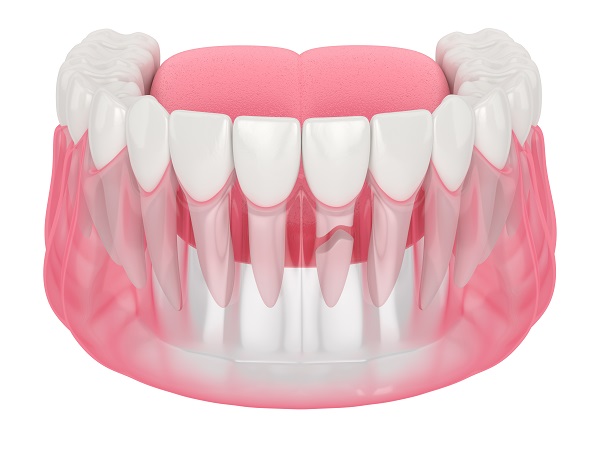When a Cracked Tooth Is a Concern

A cracked tooth does not always count as a dental emergency, but it can become a source of concern when the damage reaches the pulp chamber. The pulp chamber houses the nerve and blood vessels of a tooth. It is the innermost layer of a tooth and is sealed off from the outer layers. Damage to a tooth can end up opening this area, leaving it exposed to irritants like bacteria and acids.
Dealing with a severely cracked tooth
A crack that reaches the pulp chamber of a tooth is a serious issue that typically causes excruciating pain. It can also be accompanied by inflammation and bleeding. This type of damage leaves the soft tissues prone to infection. Such a severely cracked tooth counts as a dental emergency and requires an urgent trip to a dentist.
Treating cracked teeth
The standard way to treat a severely cracked tooth is by performing a root canal. It is a procedure that has a bad reputation as a painful treatment, but that is far from the truth. Local anesthetics are typically used during root canals, so all the patient feels is the dentist pushing on their tooth.
During the root canal, the dentist will use a dental drill to make a tiny hole that reaches the tooth's pulp chamber. Different sized files are then used to remove the contents of the pulp chamber. Once that has been completed, the dentist will insert medication into the tooth to kill off any bacteria, then the tooth is sealed with gutta-percha. The tooth can then be covered up with a crown to complete the treatment. Composite resin can also be used to rebuild the tooth.
Recovery after a root canal
There is no recovery period after getting a root canal, so patients are free to return to the regular routine. The patient might experience increased sensitivity to hot and cold foods and beverages if their tooth was prepared for a crown. The sensitivity should go away after a few days and until then, can be managed with over-the-counter desensitizing products like toothpaste and mouth rinses.
Other treatment options for broken teeth
Dentists have other treatment options that they might recommend for broken teeth that are not a serious concern. Popular ways to treat less severe cracks include the following.
Dental bonding: This involves applying composite resin to the damaged tooth and rebuilding it. The putty-like composite is applied in layers and can be color-matched with the rest of the patient's teeth. The use of a composite does not require any permanent changes being made to the tooth, so other options can be explored in the future.
Crowns: Severe damage to a tooth does not always leave the pulp chamber compromised. When this is the case, the dentist might fit the tooth with a crown to restore its function and appearance. A crown also protects the damaged tooth from further damage.
We can treat your broken tooth
Give us a call or stop by our Montville clinic if you are dealing with a broken tooth. Our dentist will educate you about your options.
Request an appointment here: https://dentistofmontville.com or call Montville Smiles at (973) 302-2079 for an appointment in our Montville office.
Check out what others are saying about our dental services on Yelp: Cracked Tooth in Montville, NJ.
Recent Posts
Implant-supported dentures are a great way to enjoy the many benefits associated with implants without having to hand over an arm and a leg. Talk to a dentist, and they will tell you that implants are the best replacement for a lost natural tooth.Implants go way beyond improving the appearance of a person's smile. These…
When it comes to general dentistry, there are a lot of different materials used. Metal, in particular, has been used for a long time, which makes it a reliable material when it comes to certain procedures. Of course, there are many other materials that can be used and that are frequently selected, but metal is…
Professional teeth whitening is one of the most effective ways to achieve a brighter, more youthful smile. With a variety of treatment options available, patients can choose between in-office whitening procedures and at-home treatments. Both methods provide excellent results, but there are key differences that can help determine the most effective option for individual needs.…
You have probably heard about dental implants and how this tooth-replacement option can restore your smile. Dentures are another treatment that patients with multiple missing teeth can benefit from. Your dentist can also combine the two by providing implant-supported dentures. There are reasons that this method offers advantages over traditional dentures.Both types of dentures come…


